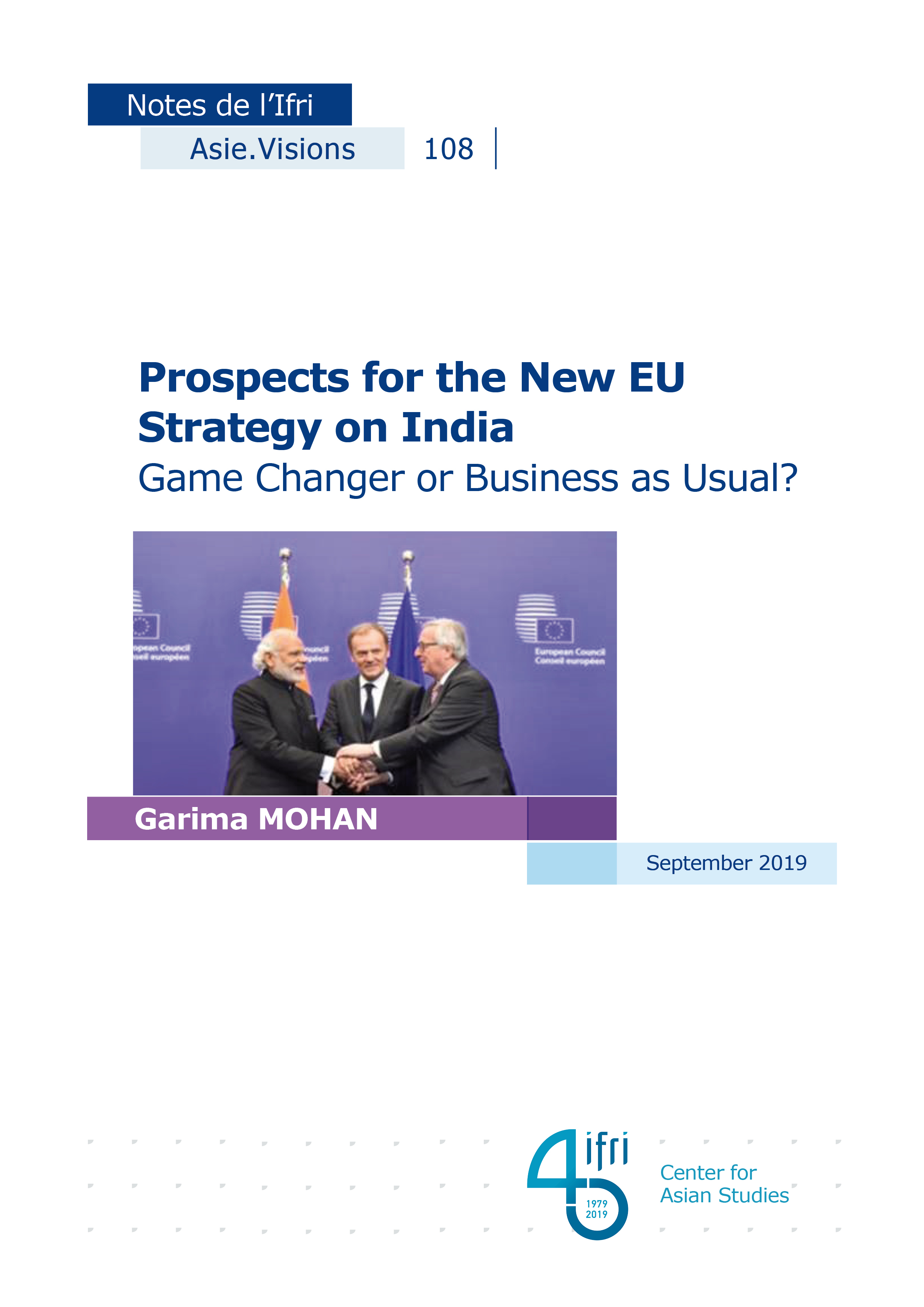Prospects for the New EU Strategy on India: Game Changer or Business as Usual?

The new European Union (EU) strategy on India marks a major moment of departure in EU-India relations.
It reflects three critical shifts: firstly, the EU no longer views India from a “trade lens” only, recognizing its important geopolitical role in maintaining a multipolar Asia. Second, the strategy frames EU-India relations in the context of broader geopolitical developments, primarily the rise of China. Recognition of the China challenge and its impact not only in Europe, but also on the balance of power in Asia, has pushed the EU to change the nature of its partnerships in the region, particularly with India. Finally, the strategy links European security and prosperity to developments in Asia, broadening the scope of EU foreign policy substantially.
This paper analyses the new EU strategy on India and highlights areas, which represent a departure from previous strategies. The paper looks specifically at proposals for greater foreign and security cooperation, for securing a rules-based order, increasing regional connectivity, improving trade and investment, and building better coordination on and with India. These proposals are commendable and respond to a long laundry list suggested by experts from both sides over a long time. They also fit well with India’s priorities, namely responding to increasing Chinese political, economic and military presence in South Asia, security in the Indian Ocean, as well as more proactive engagement in regional and global institutions.
Finally, the paper suggests ways of taking this forward and ensuring the strategy does not remain a paper tiger in the long arsenal of EU-India declarations. While more dialogues on global and strategic issues is a great idea and will help change perceptions in New Delhi that the EU is not a strategic actor, the EU will have to ensure this is not hindered by the Indian Ministry of External Affairs’ already overstretched capacities and the 30 existing EU-India dialogues. Focusing on ongoing debates in India and Europe in these dialogues, particularly connectivity projects, maritime security in the Indian Ocean, 5G networks and infrastructure might also open up new avenues of cooperation.
Overall the EU-India relationship has witnessed remarkable momentum over the last four years – aided by political will from both sides, the China challenge, friction in transatlantic ties, and common challenges within Europe and India. The new strategy is a good first step to build on this momentum. However, it needs to be translated into action fast.

Available in:
Regions and themes
ISBN / ISSN
Share
Download the full analysis
This page contains only a summary of our work. If you would like to have access to all the information from our research on the subject, you can download the full version in PDF format.
Prospects for the New EU Strategy on India: Game Changer or Business as Usual?
Related centers and programs
Discover our other research centers and programsFind out more
Discover all our analysesJapan’s Takaichi Landslide: A New Face of Power
Prime Minister Sanae Takaichi has turned her exceptional popularity into a historic political victory. The snap elections of February 8 delivered an overwhelming majority for the Liberal Democratic Party (LDP), driven by strong support from young voters, drawn to her iconoclastic and dynamic image, and from conservative voters reassured by her vision of national assertiveness. This popularity lays the foundation for an ambitious strategy on both the domestic and international fronts.
The U.S. Policy Toward Taiwan Beyond Donald Trump: Mapping the American Stakeholders of U.S.-Taiwan Relations
Donald Trump’s return to the White House reintroduced acute uncertainty into the security commitment of the United States (U.S.) to Taiwan. Unlike President Joe Biden, who repeatedly stated the determination to defend Taiwan, President Trump refrains from commenting on the hypothetical U.S. response in the context of a cross-Strait crisis.

China’s Strategy Toward Pacific Island countries: Countering Taiwan and Western Influence
Over the past decade, China has deployed a diplomatic strategy toward the Pacific Island Countries (PICs). This strategy pursues two main objectives: countering Taiwan's diplomatic influence in the region and countering the influence of liberal democracies in what Beijing refers to as the "Global South."

Opening up the G7 to South Korea to Address Contemporary Global Challenges
The G7’s global influence has diminished as powers like China reshape international governance through initiatives such as BRICS and the Shanghai Cooperation Organisation (SCO). With the G7 now representing just 10 per cent of the world’s population and 28 per cent of global GDP, its relevance is increasingly questioned.








